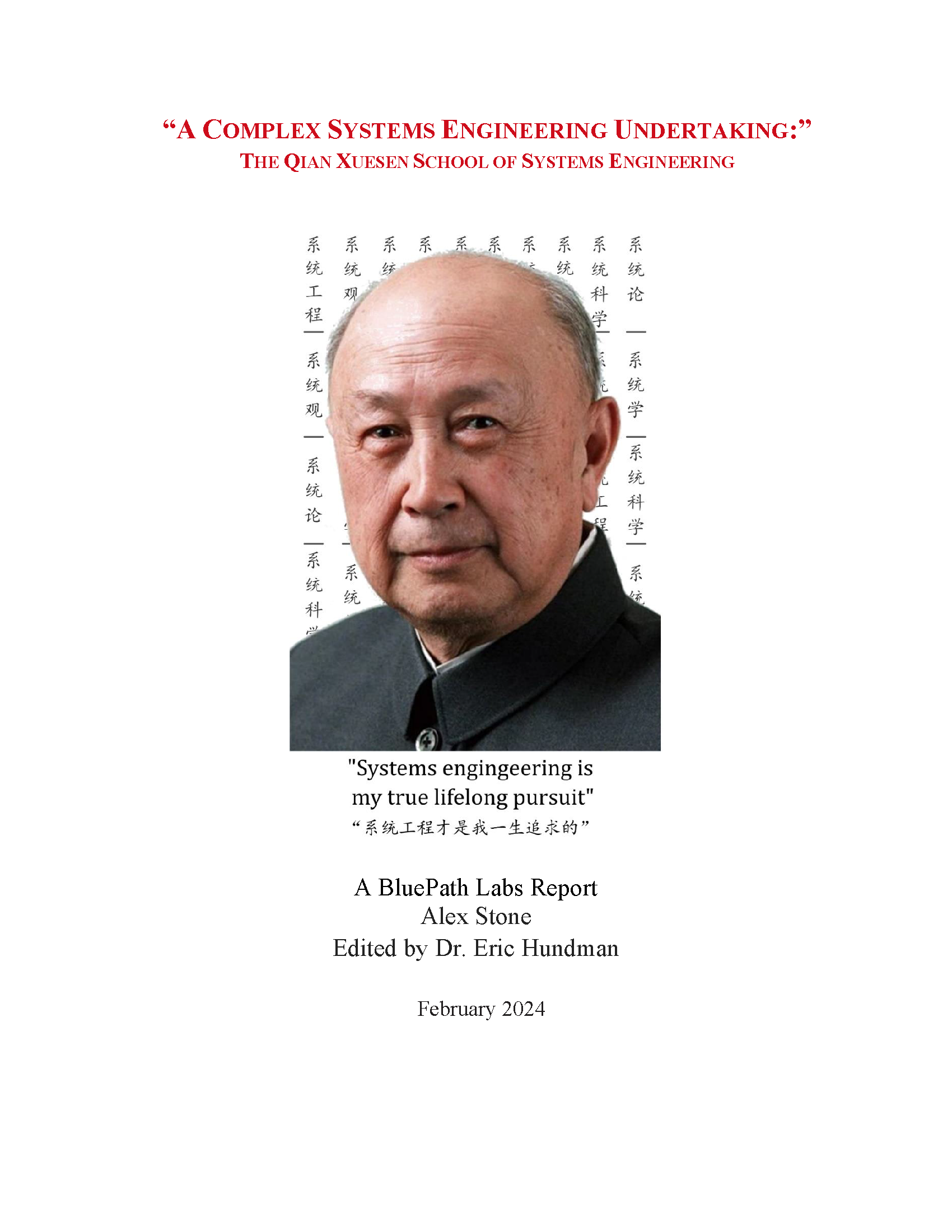Systems engineering is a method for research and analysis that holistically analyzes complex problems, such as building a spacecraft or an entire national defense program, by coordinating and optimizing components of the system such as individual work processes. This study is an early attempt to understand the Chinese school of systems engineering – most strongly associated with the ideas of Qian Xuesen [钱学森] – and the role of systems engineering-based principles in contemporary Chinese governance. It provides an overview of the origins, historical development, central theories, conceptual framework, and main applications of Chinese systems engineering. It also examines the theories driving CCP leaders’ discourse surrounding systems thinking and system approaches, as well as the tools they have at their disposal to exercise holistic governance. The study is organized into two sections: Section 1 follows the arc of Qian’s career as a systems scientist, highlighting his major contributions to the Chinese systems field, which have since become the foundational building blocks of the Chinese school of systems engineering. Section 2 examines the idea of social systems engineering and lays out its central theories, applications, and impact.
While Qian is the central figure in China’s systems engineering field, he worked with many other scholars, and successive generations of scholars have continued the development of the field. Several of these systems scholars are mentioned here, but many others have been unfortunately left out due to the scope of this study. It is also worthwhile to note that, while most Chinese scholars regard the idea of a “Chinese school of systems engineering” and the “Qian Xuesen school” as virtually the same, occasionally important differences of opinion do exist. Some students of systems science appear to dislike Qian’s inclusion of Marxist philosophy. Others question whether China needed to develop its own theoretical framework and school of thought, and still others prefer to treat the subject purely as a sub-field of mathematics. This study does not devote significant time to analyzing these differences of opinion since 1) They have yet to be developed into a coherent set of arguments; 2) the goal of this study is to understand the mainstream school of thought; and 3). Qian’s theories and ideas are the ones that have had a profound impact on generations of CCP leaders.
Click here for the full report
